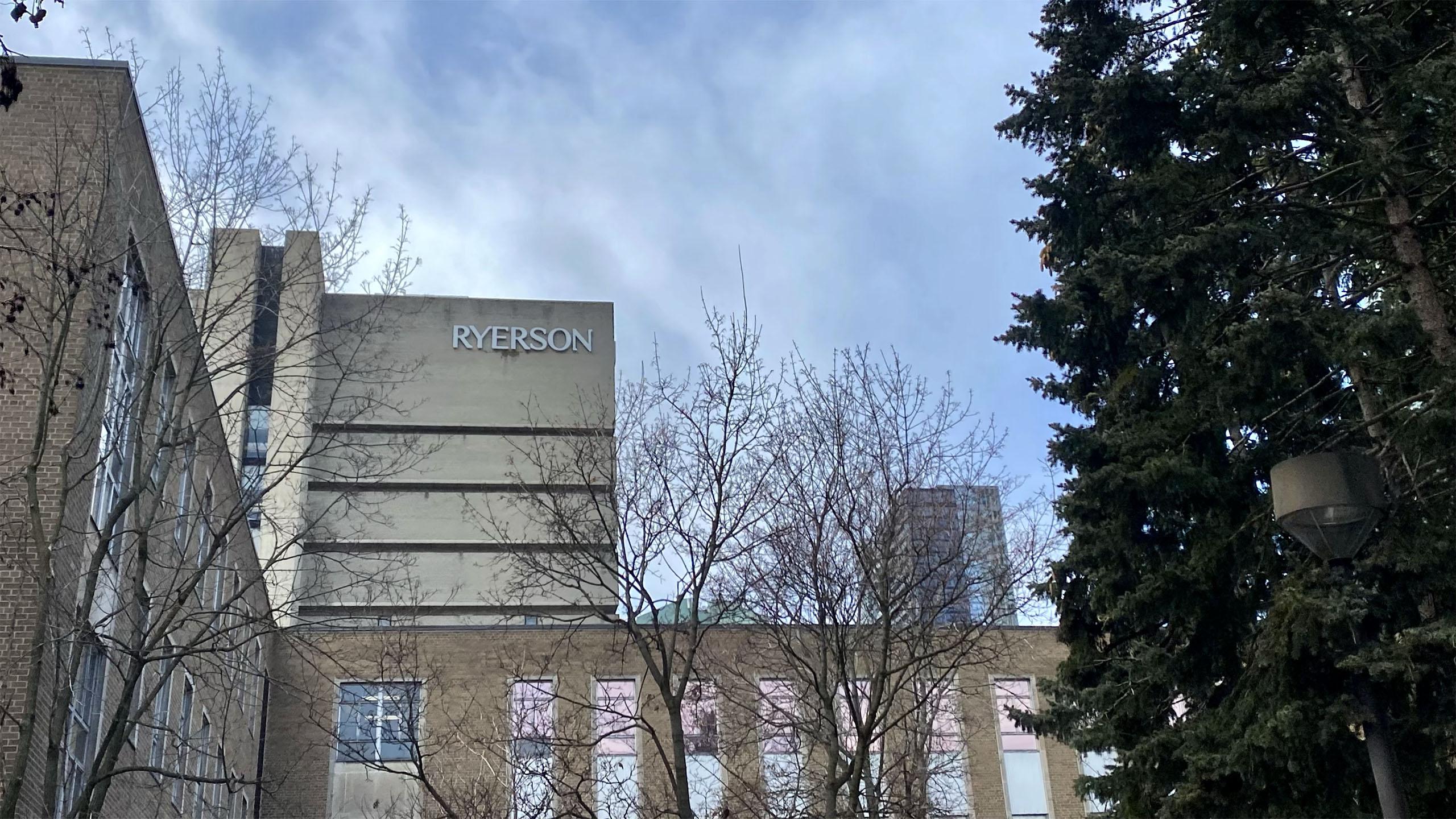By Prapti Bamaniya
Toronto Metropolitan University (TMU) has allotted $6.5 million into its budget for rebranding expenses this year in a Board of Governors (BoG) meeting on April 28.
The money “will be a pool of funds that will allow us to address all of the renaming efforts, from marketing to wayfinding to signs across campus,” said Glenn Craney, deputy provost and vice-provost, university planning, at the meeting.
According to Craney, there are three overall priority areas for reinvestment. The first is the commitment to the community and the school’s values. This includes funding for rebranding expenses, and the Standing Strong (Mash Koh Wee Kah Pooh Win) Task Force, which oversaw the renaming of the university.
Craney said the university’s second priority area is implementing new initiatives, mainly focusing on the new school of medicine that aims to accept students in the fall of 2025. The school will be funded by additional government support, said Craney.
The third priority is investing in the future, which according to Craney, includes investments in future hybrid workplace environments and the “future of work.”
Here’s what else you missed at the April BoG meeting:
Changes in Enrolments and Fees
International and out-of-province tuition are going to increase by five per cent. A change in the fee policy for this year allows an increase for out-of-province and international fees, said Craney, and the school is “looking to take advantage of that framework” to increase its revenue. International student enrolment is also projected to increase.
In the 2021-22 budget, domestic fees ranged from $7,032 to $11,140 for Canadian citizens or permanent residents who reside in Ontario at the time of their admission, according to TMU’s tuition fees website.
Canadian citizens or permanent residents from out of province had to pay a three per cent increase from that in the 2021-22 term, ranging from $7,242.92 to $11,474.20. This is projected to increase by another five per cent in the 2022-23 term, bringing the new range up to $7,383.60 to $11,697.91.
International undergraduate students paid $29,945 to $38,457 during the 2021-22 term which will increase by five per cent as well to $31,442.25 to $40,379.85.
Domestic fees saw a decrease of 10 per cent in the 2019-20 academic year, in comparison to the year prior. According to Craney, there was also a decrease in domestic enrollment. However, he added that “we have strong domestic demand and given the application figures that have come in for this year, we will not have challenges meeting our domestic enrollment targets.”
This year, TMU’s revenue is expected to increase by 2.6 per cent and additional student financial aid for all students across campus is expected to increase by four per cent. The latter will be done through salary and benefit increases, which are balanced by an overall two per cent budget reduction.
Ancillary funds, which include non-tuition fees such as academic support, campus safety and student and campus-related organizations, have usually been self-funded, said Jennifer Simpson, provost and vice-president, academic. However, the pandemic has changed that and allowed more funding from the school, according to Simpson.
There is a projected overall shortfall of $1.1 million in the 2022-23 year, which is comparatively less than last year’s shortfall of $9.4 million. This means that last year the school had a bigger deficit in terms of ancillary fees and was spending more than its revenue. This is likely because of the termination of in-person fundraisers and events, which mostly funded these ancillary operations. Simpson also announced the continuation of the Standing Strong Task Force’s 21 recommendations, now that a new name for the school has been chosen.
The numbers in renaming the university
TMU’s renaming announcement reached approximately 1.8 billion people through various media coverage on the news, according to president Mohamed Lachemi.
The renaming was announced in collaboration with The Globe and Mail and received 7 million readers and 4,800 social media shares, Lachemi said at the meeting. A Toronto Star op-ed also reached 6 million readers. The TMU communications team secured an estimated 3,300 online stories and 2,290 broadcasts about the renaming announcement, said Lachemi.
The story was also covered by international media in the U.S., India and the UK. Lachemi said one per cent of stories were negative but that was expected. “If you have done much work with the media, negative is often the norm.”
Indigenous elder and senior advisor Joanne Dallaire said the school did its due diligence when it came to Indigenous inclusion with the renaming. “I would say we have done everything we could to reach out to Indigenous students, faculty and staff but also reached out to Indigenous leaders,” said Lachemi.
Committee members have raised concerns in the past about the lack of adequate Indigenous representation on the committee, and disingenuous intentions as previously reported by The Eyeopener.
Congratulating accomplishments of TMU Athletic Teams
Lachemi congratulated the Rams women’s basketball team for their undefeated season and win in the 2022 National University Championship. He also applauded the Rams men’s hockey team as they finished fourth in the country among 56 member universities.
Re-election and the future
Tony Staffieri was also nominated for re-election as chair of the BoG for the upcoming year.
The next BoG meeting will be held on June 30.










Leave a Reply